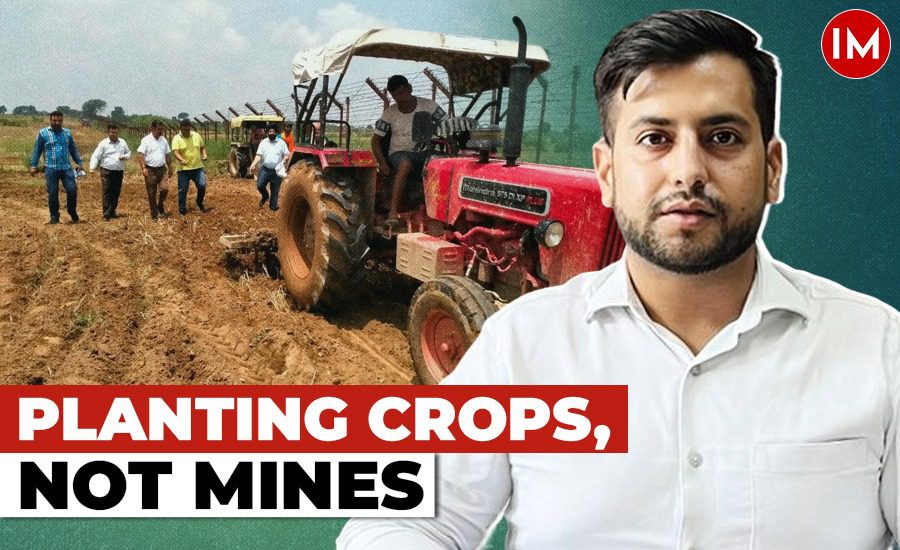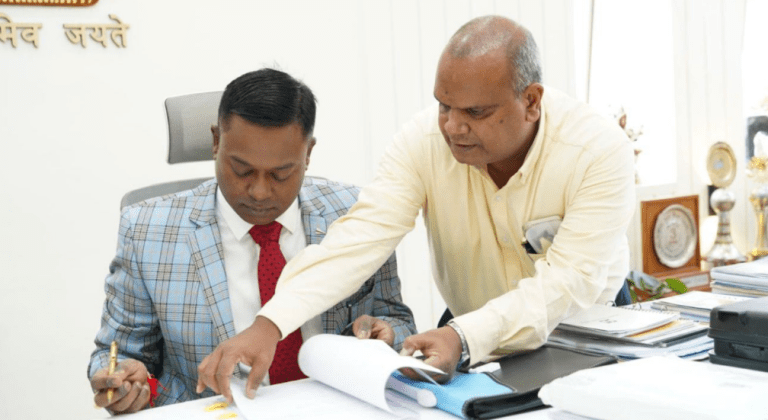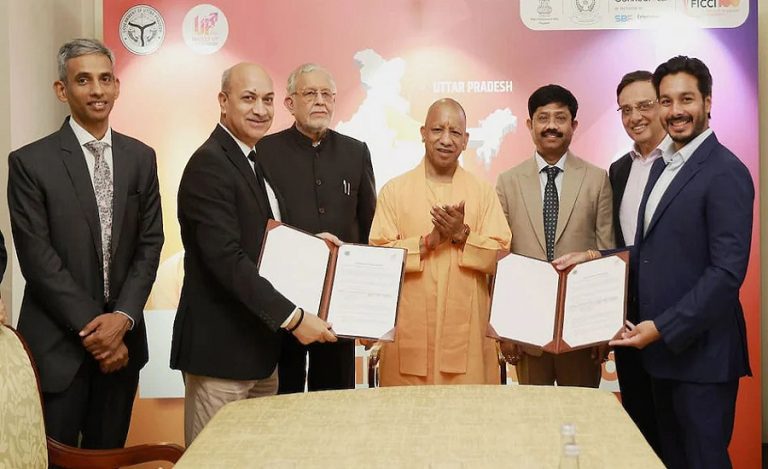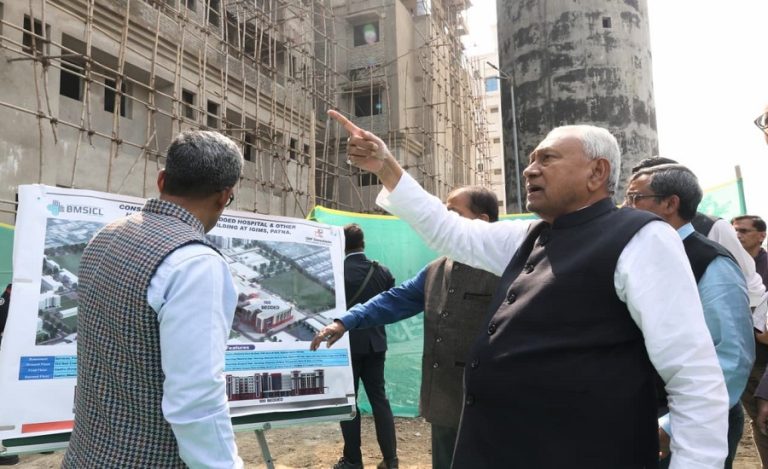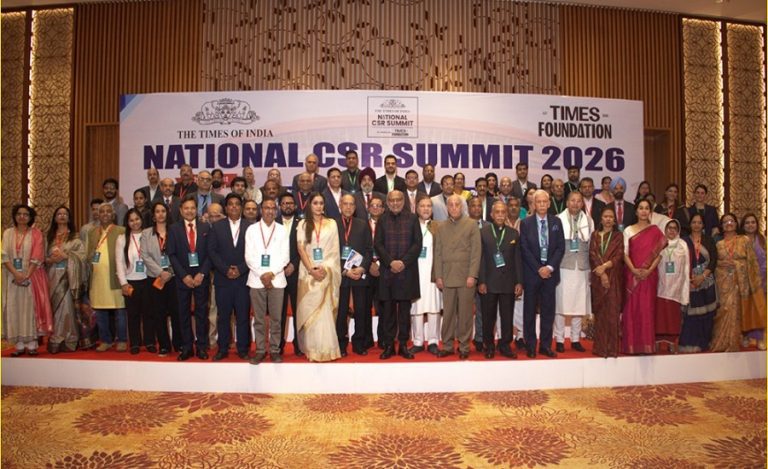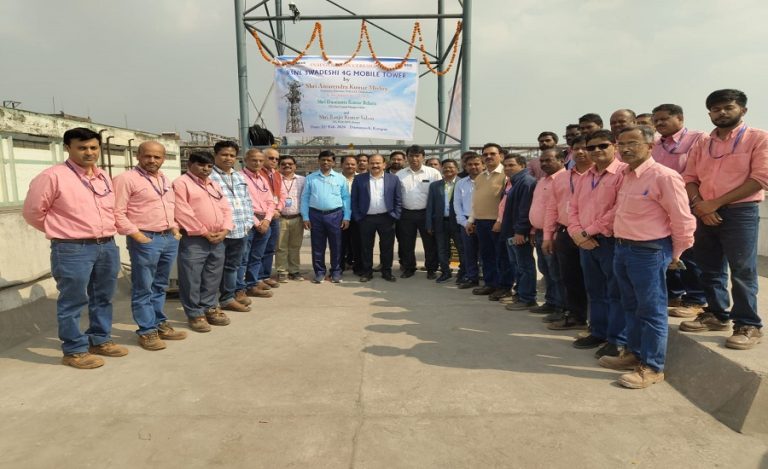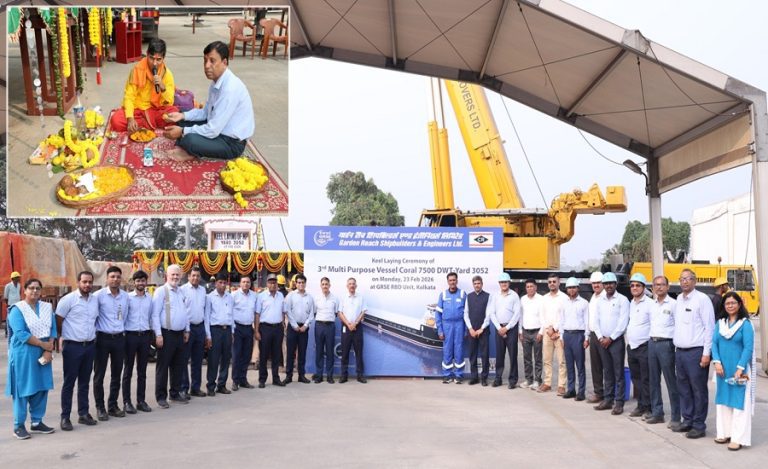Do you know that for over two decades, a significant stretch of fertile land in Jammu & Kashmir’s Samba district lay untouched, its potential unfulfilled due to border tensions and security concerns? This vast expanse, nestled between the international border and the fence, belonged to local farmers who, since 1999, had been unable to cultivate their fields.
Once a vibrant landscape of agricultural activity, it became a symbol of the strained relations and frequent cross-border violations that plagued the region. However, a new chapter is unfolding as the District Administration Samba, in collaboration with the Agricultural Department, seeks to reclaim this land for farming while simultaneously enhancing national security. This effort is not only restoring the economic vitality of the area but also fortifying the country’s defenses, blending agricultural revival with strategic importance.
Speaking with Indian Masterminds, Abhishek Sharma, a 2018 batch IAS officer and the current District Commissioner of Samba, shared the initiative in detail.
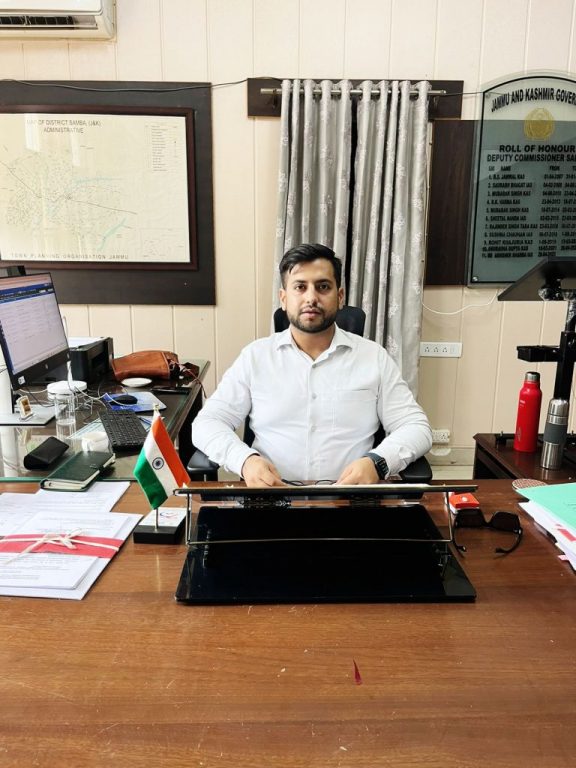
THE HISTORICAL CONTEXT
The land between the international border and the fence, owned by local farmers, has remained uncultivated for over two decades. This hiatus in agricultural activity stemmed from the tense situation along the border, which saw frequent cross-border violations and shelling, rendering farming unsafe. However, the last five years have witnessed a significant decrease in such incidents, creating a conducive environment for the revival of agriculture.
A DUAL-PURPOSE INITIATIVE
Abhishek Sharma explains the dual objectives of this initiative: “Cultivating the land beyond the fence serves both national security interests and the economic welfare of the farmers. Uncultivated land tends to become overgrown with wild grasses, which can obscure the view and hinder the monitoring of the international border by the Border Security Force (BSF). By encouraging farmers to return to their fields, we can ensure a clear view of the border, enhancing surveillance and security.”
The project gained momentum through concerted efforts by the district administration, BSF, and local farmers. After multiple rounds of negotiations and discussions, the farmers were reassured of their safety while working near the border. “Coordination with the BSF and other security forces was crucial,” Mr. Sharma notes. “We assured farmers that all necessary precautions would be taken, and they would be escorted to and from their fields.”
The District Administration Samba in collaboration with Agriculture Department has initiated major issue of the farmers of District Samba regarding the cultivation of land beyond the fence which has not been cultivated from the year 1999 during the financial year 2024-25. pic.twitter.com/GRRuAeeWKi
— Information & PR, J&K (@diprjk) July 13, 2024
ECONOMIC UPLIFTMENT AND NATIONAL SECURITY
The initiative’s impact has been profound. During the recent Rabi season, hundreds of acres of land were cultivated with urad dal, a crop that promises to improve the farmers’ economic status. This resurgence in farming activity also acts as a natural surveillance mechanism. “When farmers are on their land, they are likely to notice any unusual activities, such as the presence of tunnels or other threats to national security,” Mr. Sharma explains.
The project’s success hinges on the collaboration between local authorities and the farmers. The BSF has played a pivotal role in ensuring the safety of the farmers, providing escorts and monitoring their activities to prevent any untoward incidents. This close cooperation has fostered trust and confidence among the farmers, who now feel secure enough to return to their fields.
CHALLENGES AND SOLUTIONS
One of the significant challenges was addressing the farmers’ apprehensions about their safety. The district administration, in collaboration with BSF, conducted several awareness campaigns and meetings to reassure the farmers. They were informed about the stringent security measures in place and the benefits of resuming agricultural activities.
Another challenge was the presence of landmines in certain areas. The BSF provided detailed maps indicating mine-free zones, ensuring that only safe areas were earmarked for cultivation. This meticulous planning and coordination have been instrumental in the project’s success.
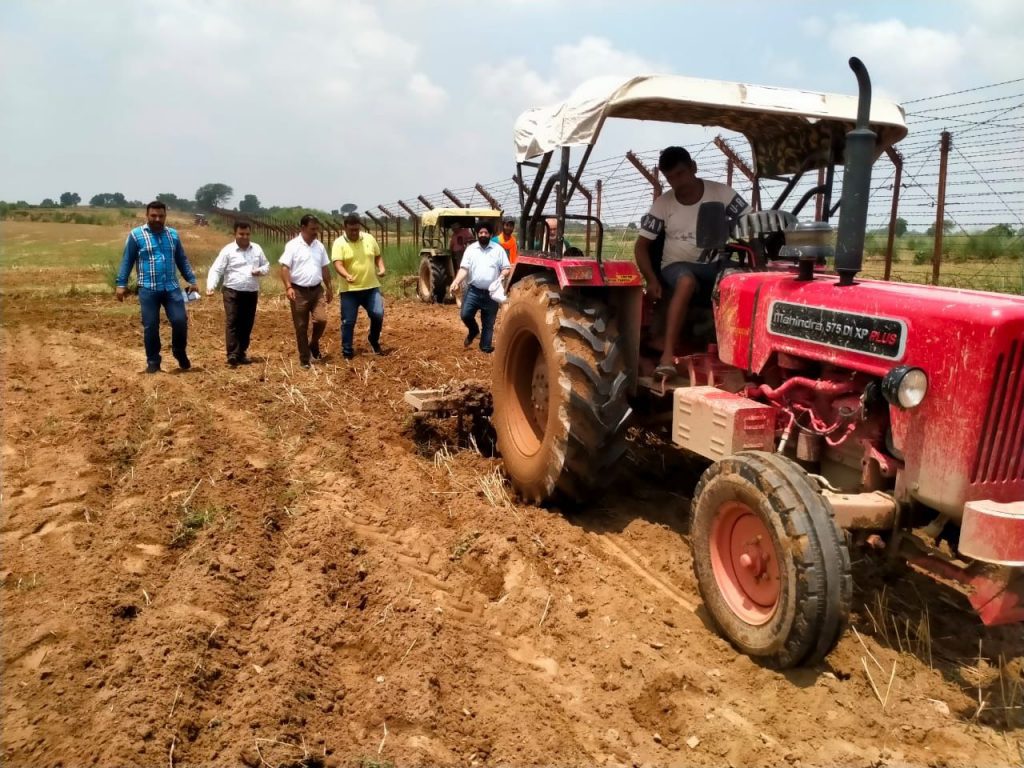
HARNESSING GOVERNMENT SCHEMES
The initiative also leverages various government schemes to support farmers. The Mahatma Gandhi National Rural Employment Guarantee Act (MGNREGA) and the Pradhan Mantri Kisan Urja Suraksha evam Utthaan Mahabhiyan (PM-KUSUM) scheme have been particularly beneficial. “PM-KUSUM, which promotes solar energy, is especially useful in border areas with ample sunlight and a high water table. More and more farmers are using the benefits of PM-KUSUM to irrigate their land,” says Sharma.
A SUCCESS STORY IN NUMBERS
So far, 500 kanals (approximately 62.5 acres) of land have been reclaimed and cultivated. The farmers’ return to their land has brought about a sense of positivity and economic upliftment in the border areas. The once-frequent evacuations due to cross-border shelling are now a thing of the past. “The situation has improved remarkably since 2018, and the farmers are delighted to be back on their land,” Sharma reflects.
The success of this initiative has paved the way for a brighter future for Samba’s farmers. As more farmers come forward to cultivate their land, the district administration remains committed to providing them with the necessary support and security.
The revival of uncultivated land beyond the fence in Samba is a win-win situation. It enhances border security while simultaneously uplifting the local economy. The district administration’s efforts, coupled with the farmers’ resilience and the support of the BSF, have turned a long-standing issue into a story of hope and progress.

